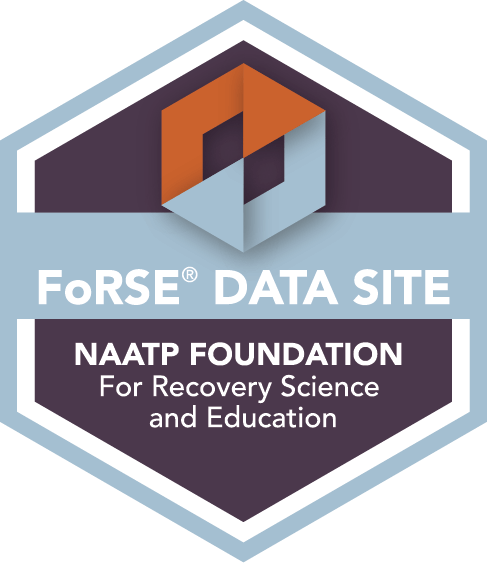Struggling with drug and alcohol addiction is a deeply personal journey. For women, the challenges can be uniquely complex. A gender-specific treatment center plays a vital role in addressing these differences with care and understanding. At Northern Illinois Recovery in Crystal Lake, Illinois, we offer specialized services that specifically cater to women’s needs, including detox, residential treatment, outpatient treatment, and dual diagnosis treatment.
Research shows that women face distinct barriers to seeking treatment, including societal stigma and caregiving responsibilities. This is true even though more than 19.5 million women in the U.S. use illegal drugs annually. Tailored addiction treatment programs provide a supportive environment where women can heal, grow, and build the foundation for long-term recovery.
Women face unique forms of trauma that can provoke a substance use disorder. These can include:
- Verbal, physical, or sexual abuse
- Family problems, such as divorce or the loss of a child
- Isolation or loneliness
- Self-esteem or self-image issues
- Chronic physical pain

- Anxiety
- ADHD
- Bipolar disorder
- PTSD
- Depression
Gender Differences in Addiction and Treatment
There are many specific differences in the way addiction and treatment affect men and women. Women are often more likely to face greater stigma and bias regarding addiction and the need for treatment. This is usually due to the role that women play within a household and the fact that family members and healthcare professionals alike often downplay women’s struggles.
Research has historically been focused on men with substance use disorders, which has neglected many biological, psychological, and social differences between men and women. Only over the past 20 years has it started to change. Research has discovered several differences in how men and women face addiction and getting appropriate drug and alcohol addiction treatment, including:
Although women make up a smaller portion of people addicted to drugs and alcohol, they are more likely to seek professional help and check in at a residential treatment facility. Women are more likely to determine that their use has spiraled out of control.
Women are more likely than men to be diagnosed with a mental health disorder, which often leads them to seek help for their addiction. Unfortunately, women are less likely to be encouraged by family and friends to get help for their addiction. This support system can be crucial in the early stages of recovery.
While men are more likely to abuse drugs and alcohol as a way to cope with stress or escape from their problems, women are more likely to use substances as a way to self-medicate underlying mental health issues such as depression, anxiety, and trauma. This means that women will likely need different types of treatment approaches to achieve successful recovery.
Men are often more likely to suffer from substance abuse than women, and men are more likely to receive treatment for substance abuse.
Men are nearly twice as likely as women to be encouraged by loved ones to receive addiction treatment. This disparity may be due in part to the fact that women are more likely to have responsibilities (such as childcare) that make it difficult for them to take time off work or away from home to get treatment. Women may also be more likely to face financial barriers, as they are less likely than men to have health insurance that covers addiction treatment.
Women who suffer from addiction are more likely to have co-occurring mental health disorders than men. Women are nearly twice as likely as men to suffer from depression, anxiety, or post-traumatic stress disorder (PTSD).
These disorders can make it difficult for women to cope with the stresses of everyday life, which can lead to substance abuse. Mental health treatment centers that specifically cater to the needs of women can be very beneficial. These centers typically offer programs and services that are designed specifically for women, which can help them overcome the unique challenges they face in drug and alcohol recovery.
Women often report being introduced to substance abuse through a romantic relationship, whereas men are typically introduced through peer pressure. But a woman’s level of dependence tends to scale much more rapidly than that of men. This is known as “telescoping.”
But women also tend to recover much faster from addiction. This could be related to the fact that women typically initiate substance use disorders later in life than men do.
Since men and women have different hormone levels and less overall body mass, these can ultimately determine how some substances affect them differently. For example, alcohol affects women much more quickly than it does in men due to their typically having less water in the body. There is also evidence that suggests that women metabolize nicotine more quickly than men do.
Women also face a greater likelihood of suffering from substance-related health issues, such as liver damage, breast cancer, and nerve damage. This is true even with lower levels of use compared to men.
Benefits of Women-Centered Addiction Treatment in Illinois
- Women-only rehab centers provide a judgment-free space where women can openly discuss sensitive issues (such as trauma, mental health challenges, and societal pressures) without fear of judgment or discomfort from male peers.
- This environment fosters trust, vulnerability, and a sense of community, which are essential for healing and recovery.
- Many women in addiction treatment have experienced trauma, such as domestic violence or sexual abuse. Women-only programs often incorporate trauma-informed care, ensuring that therapy is sensitive to these experiences and avoids re-traumatization.
- Therapists trained in trauma-focused modalities can help women process their past in a safe and empowering way.
- Women-only programs address unique challenges like body image, self-esteem, family responsibilities, and societal expectations. These tailored therapies help to equip women with healthier coping strategies and tools for long-term success.
- Group therapy in these settings allows women to share experiences and insights with others more likely to understand their struggles, fostering camaraderie and mutual encouragement.
- The absence of men in addiction treatment programs helps to reduce potential distractions and social pressures, enabling women to focus on their recovery journey.
- This setting also allows women to explore issues like relationship dynamics and codependency in a more relaxed environment.
- A women’s treatment center is designed to emphasize empowerment, helping women rebuild their confidence, set healthy boundaries, and develop life skills for sustainable recovery.
- A structured treatment environment includes practical tools like job readiness, financial literacy, and stress management, preparing women for life after treatment.
- These programs often integrate support for mothers, including childcare services and therapy focused on balancing recovery with family obligations.
By creating a nurturing, gender-specific environment, women-only rehab programs address the unique challenges women face in addiction and recovery, offering a foundation for healing, resilience, and long-term sobriety.
Research from 43 addiction treatment programs has determined that women who are enrolled in gender-specific programs ultimately have better treatment outcomes than those in mixed gender programs. Women in these programs reported feeling more satisfied with their treatment, safer, and more comfortable.
We work to maintain a safe and caring environment where women can step away from the stresses and distractions of life to focus on rebuilding their lives free from substance abuse. Our women’s addiction treatment center in northern Illinois offers several substance use disorder treatment programs, such as:
- Drug and alcohol detox
- Partial Hospitalization Program (PHP)
- Intensive outpatient program (IOP)
- Telehealth intensive outpatient program
- Outpatient treatment
- Sober living
- Aftercare
Across all these programs, women can take advantage of a wide range of therapies, including:
- Individual therapy
- Group therapy
- Family therapy
- Dialectical behavior therapy (DBT)
- Cognitive-behavioral therapy (CBT)
Our staff can help you decide which treatment is best for you based on your addiction, your circumstances, and a thorough assessment. We can help you develop a treatment plan that meets your needs.
Our treatment center in Chicago puts a major emphasis on detox. In many cases, a successful detox can set the foundation for a sustainable recovery.
Following detox at Northern Illinois Recovery, our women’s alcohol rehab uses evidence-based treatments to help women recover from alcohol addiction. We also consider any other mental health issues that may be present during this time.
Our women’s drug rehab program is specifically designed for women seeking a gender-focused approach. At NIRC, we offer a women’s drug rehab center that addresses the whole person (mind, body, and spirit) because we understand this approach is essential for overcoming drug addiction in a lasting way. For continued support after treatment, many participants transition to women’s sober living homes. These provide a structured and safe environment to maintain recovery.
Long-Term Recovery for Women
During your stay in treatment, we provide the tools you need to handle your temptations and cravings, as well as help you learn more about your addiction. You can learn what is going on inside and how it is affecting your addiction. Our treatment specialists are here to facilitate your path to recovery and guide you along the way.
Insurance Verification






Women’s Addiction Treatment FAQs
Women’s addiction treatment programs are designed to meet women’s emotional, physical, and social needs. These programs often emphasize trauma-informed care, family therapy, and empowerment, allowing women to address underlying causes of addiction in a nurturing and distraction-free environment.
Women may turn to drugs or alcohol to cope with stress, trauma, low self-esteem, chronic pain, or mental health issues. Life events such as abuse, loss, or family pressures can also contribute to substance use and addiction.
Yes. Many women experience co-occurring mental health conditions like depression, anxiety, PTSD, or bipolar disorder. Dual diagnosis treatment allows women to address both addiction and mental health simultaneously, improving overall recovery outcomes.
A women-only rehab center offers safety, comfort, and understanding. In this environment, women may feel freer to open up about sensitive issues, form meaningful connections with peers, and receive care that focuses on empowerment, healing, and long-term recovery.
The duration of treatment varies based on individual needs, the severity of addiction, and progress in recovery. Programs may range from several weeks to several months and can include multiple levels of care, from detox to outpatient and aftercare.
Yes. Flexible options such as intensive outpatient (IOP) and telehealth programs allow women to receive treatment while continuing to care for their families or maintain employment. These programs provide structure without requiring full-time residential care.
Let Northern Illinois Recovery Center Help You Get Clean
You don’t have to battle addiction alone. To find out more, call us today to learn how we can support your recovery.





